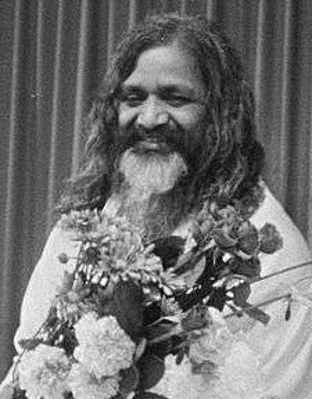According to author Jonathan Gould, Lennon and Harrison viewed their bandmates' departures as an example of McCartney and Starr "once again balking on the path to higher consciousness", just as the pair, particularly McCartney, had earlier held out before joining them in their LSD experimentation. While Harrison and Lennon remained steadfast in their devotion to meditation after McCartney left, some members of the Beatles' circle continued to be distrustful of the Maharishi's hold on them. Aspinall was surprised when he realised that the Maharishi was a sophisticated negotiator, knowing more than the average person about financial percentages. According to Saltzman, Evans told him that the Maharishi wanted the band to deposit up to 25 per cent of their next album's profits into his Swiss bank account as a tithe, to which Lennon replied, "Over my dead body." In Brown's account, Lennon was not opposed to paying the tithe until Alex Mardas, the Maharishi's "most powerful critic", intervened.
Mardas arrived after McCartney had left. He pointed to the luxury of the facility and the business acumen of the Maharishi and asked Lennon why the Maharishi always had an accountant by his side. In an attempt to silence his criticism, according to Mardas, the Maharishi offered Mardas money to build a high-powered radio station. Lennon later told his wife that he felt that the Maharishi had, in her words, "too much interest in public recognition, celebrities and money" for a spiritual man. Cynthia Lennon, Cooke de Herrera and authors such as Barry Miles have blamed Mardas for turning Lennon against the Maharishi; in a statement published in The New York Times in 2010, Mardas denied that this was the case. Meanwhile, the weather, which had been quite cool in February, was growing hot and the Maharishi was planning to move the whole group to Kashmir, at a higher and cooler altitude, in a week. This move was something that occurred every year during the annual retreats.
According to Cooke de Herrera, the Maharishi had given the Beatles and Apple Corps the rights for a film about the Maharishi, his movement and his teacher, Guru Dev. While their "people and equipment were on the way", Charles Lutes, the head of the Maharishi's Spiritual Regeneration Movement in the US, arrived and signed a contract with Four Star Films. The contract was negotiated by Horn and John Farrow was scheduled to direct the film. Horn expected that Donovan, the Beatles, the Beach Boys and Mia Farrow would appear in it. When some of the film crew from Four Star Films arrived around 11 April, Harrison and Lennon stayed out of sight. Horn said that the arrival of the Four Star crew was the catalyst for the two Beatles' discontent.




